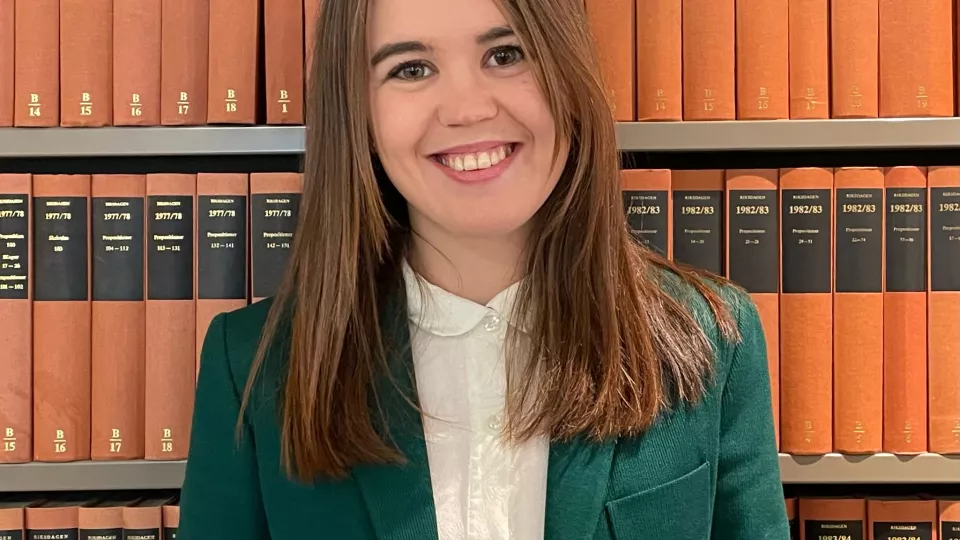The thesis is about rule of law conditionality in the EU. Is it possible to persuade political actors (such as the governments of certain EU member states) to respect fundamental principles of rule of law by withholding money from them if they don’t? The results show that the EU uses this both with the purpose of protecting the EU against breaches of the rule of law and to uphold respect for the rule of law per se. Katarina was awarded the honorary mention “for a very elaborate, well-structured, timely and well-written essay on the work to protect the rule of law within the EU. The thesis has an impressive theoretical depth and discusses in an informed manner the advantages and pitfalls of the new financial conditionality mechanism.”
We asked Katarina about the thesis-writing process. She says she chose this topic because she has been passionate about issues regarding democracy and human rights for as long as she can remember, and sees the rule of law as an interconnected concept of these norms. She thinks that law and economic reform are the two main ways of implementing political ideas in society. When doing an internship at the Swedish Ministry of Justice’s Division of EU Affairs Katarina monitored pending cases in the Court of Justice in the EU, and two cases caught her attention. In these cases, Poland and Hungary sued the EU institutions over establishing a rule of law based financial conditionality mechanism. This further inspired Katarina to write about this topic in her thesis.
Katarina thought that being fully in charge of her own time during the thesis process was both the best and the most challenging part of it. She enjoyed the freedom and being able to choose which topic to deep dive into, but she also struggled with thoughts of where she was going with the thesis and if it was any good.
To mitigate this, and as advice for future thesis writers Katarina says that it is important to keep working and writing and set small goals for yourself that you may achieve on a weekly or even daily basis. Katarina also stresses that it is important to find a suitable method and not confine yourself to a taken-for-granted method, such as the legal dogmatic method for law students. She herself read other students’ theses and found a method better suited for her topic, the EU law in context method.
Finally, Katarina says that you should avoid waiting to draw all your final conclusions to the end and instead think already at the beginning of writing: “Why is this subject important? What is it that I am trying to say? How may I contribute to previous research in this area?” This is hard, she observes, because when writing your thesis, you are constantly expanding your knowledge and learning new things about your subject. But doing it this way enables you to streamline the arguments and make the writing process a bit easier.
Here you can read Katarina’s thesis. (PDF, 995 KB, new window)
Today, Katarina works as a legal associate at Advokatfirman Vinge in Stockholm, where she specialises in EU law, competition law and regulatory law. In January, Katarina will start to serve as a law clerk (notarietjänstgöring in Swedish) at the Administrative Court in Stockholm.


